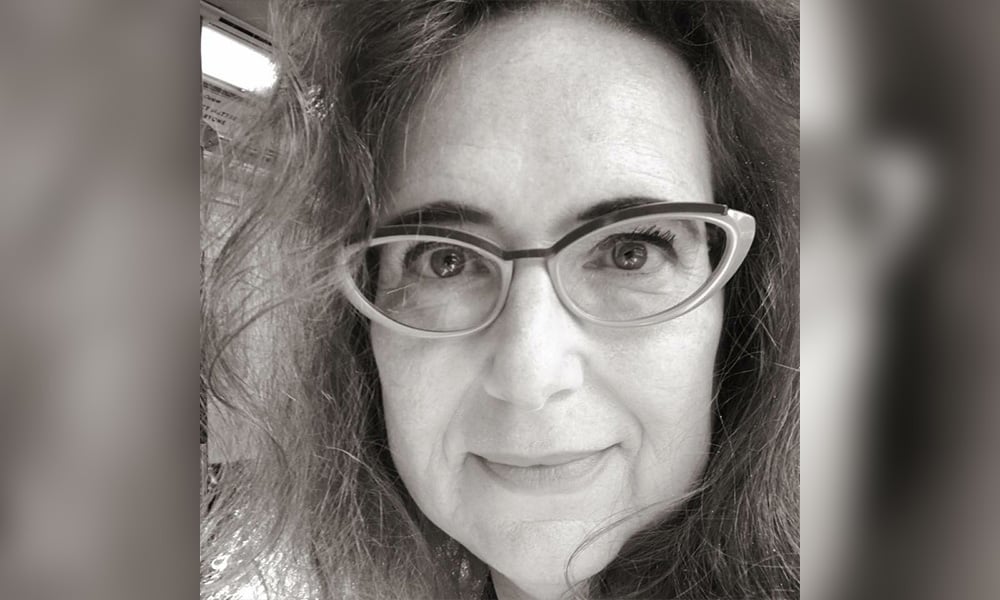
Already ‘extremely prevalent’ in law, the problem has been exacerbated by COVID, says lawyer

The legal profession must do more to ensure inclusion for lawyers with serious mental health and addiction issues, says Anita Szigeti, a litigator with a practice focussed on mental health and the law.
It is a well-documented phenomenon that lawyers experience mental illness, substance abuse and addiction at a higher rate than the overall population. There is even evidence that the problem is worse for those who have achieved higher pay and status in the profession.
“Mental health and addiction issues are extremely prevalent in our profession… and it's escalating during COVID,” says Szigeti.
She adds that, under Treasurer Teresa Donnelly, the Law Society of Ontario has made mental health a priority.
“I am grateful to her for that… Now, what I think the law society needs is guidance on how these problems actually unfold on the ground,” she says.
Szigeti is Principal Lawyer at Anita Szigeti Advocates, a firm focussed on mental health and the law. She is former chair of the Mental Health Legal Committee and Legal Aid Ontario's Mental Health Law & Policy Advisory Group. Szigeti is also president and founder of the Law And Mental Disorder Association, a 175-lawyer advocacy organization for mental health law, and co-author of the recently published Guide to Mental Disorder Law in Canadian Criminal Justice.
Szigeti would like to see the LSO rethink its approach to discipline when it comes to mental health and addictions. Rules 7.1-3(d) and (e) of the Rules of Professional Conduct require that lawyers report to the law society if a mental illness or addiction may prevent a lawyer or paralegal from competently doing their job. The purpose of the duty to report is to protect the public.
“I appreciate the impetus for that rule,” says Szigeti. “But it has a very chilling effect where people actually don't disclose to their colleagues what the issues are… No one is going to tell me that they are struggling to a severe degree, mental health or addictions, when they know that I'm a rule governed person.
The rule should be rephrased, she says. If a lawyer is in a crisis that is affecting their work, rather than bringing a disciplinary body into it, more helpful would be allowing for formal supervision, guidance and support to attempt to repair the situation.
“In my practice, I provide informal structures and support for lawyers with mental health and addictions issues,” says Szigeti. “But I really don't want them telling me if there's a major problem, because as soon as there's a major problem – or any problem, really – I have to report.”
“It’s a hard line for us to walk. And we shouldn't be put in that position. We should be able to support our colleagues and have candid conversations with them.”
On a broader level, in the mental health and addiction conversation, there is a focus on eradicating stigma, on opening a dialogue and cultivating a comfortable environment for those who are suffering to disclose and seek help, Szigeti says. She adds that it is important to be aware that the stigma of a mental illness or addiction is experienced differently for different lawyers, whether they be racialized, younger, older or suffering from intergenerational trauma.
“We have to recognize how much easier it is for some people to disclose than others,” she says.
She also takes issue with the use of the word ‘stigma,’ saying it treats the issue as if it is a “third-party, neutral thing.” The correct language is “discrimination and stereotyping,” she says.
Szigeti is also sceptical of the focus on wellness – panels and webinars which promote a balanced diet, yoga, exercise and other staples of a healthy, well-adjusted lifestyle. She says it masks some of the real, legitimate aggravating factors that exist for lawyers who are struggling.
“What they need is for the structure of the profession to change. What they need are real supports. They need reduced fees,” she says. “During COVID, they need a recognition that when you're on your own or you are a small firm, you don't have a lot of money, that when you're struggling to do public-interest litigation, on legal aid, these are pressures that are real, that exacerbate mental health and addictions.”